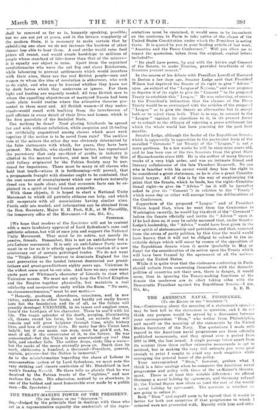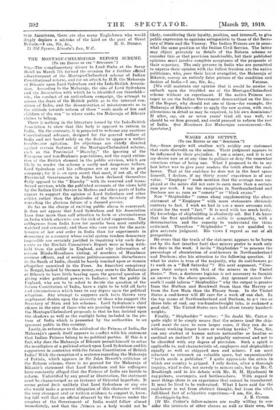THE AMERICAN NAVAL PROGRAMME.
tTo THE EDITOR or ran " &scram"'
Sia,—Controversy about the meaning of a statesman's speeches may be beet left to the °talesman in question, and 1 do not think any purpose would be served by a discussion between your correspondent "Dion," who writes, from Philadelphia, and myself on the meaning of the statements by the United States Secretary of the Navy. The quotations I made with regard to the American naval programme are from officially published memoranda, and they ;spread over a period from 1813 to 1918, the last issued. A single passage taken apart from its context from these rather extensive memoranda is apt to mislead, but in making the very full extracts you were grad enough to print I sought to avoid any such suspicion while conveying the general tenor of the policy.
Your correspondent " Dion," however, prefers what 1 think is a false analogy when he compares the American naval programme and policy with those of the ex-Kaiser's Govern- ment. There is at least this notable difference: we offered Germany a naval holiday by itgreement, and Germany refused it; the United States now offers us (and the rest of the world) El naval holiday by agreement. The question is whether we are going to refuse it. Both "Dion" and myself seem to be agreed that it would Inc better for both our countries if that programme to which I referred were not proceeded with. Equally with him and othe
true Americans, there are also many Englishesen who would deeply deplore a mistake of the kind On the part of Great Britain.—I am, Sir, ific., H. G. Thames. 25 Old Square, Lincoln's Inn, W.O.



































 Previous page
Previous page